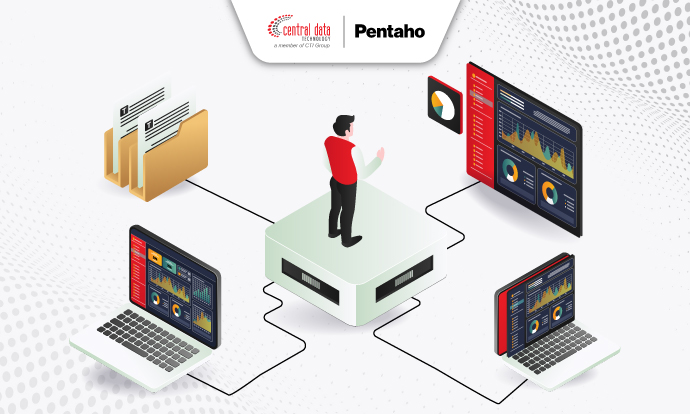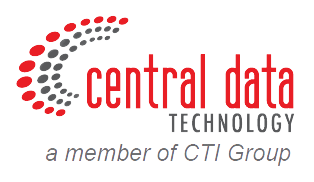
In today’s digital era, data has become a vital asset that shapes the success of businesses. From offering insights into operations and customer behavior to uncovering market opportunities, data is at the core of strategic decision-making. However, managing increasing volumes of data effectively is a significant challenge for many organizations.
This is where data management comes into play. This article will delve into the definition of data management, its benefits, key focus areas, common challenges, and best practices that businesses can adopt to optimize their data operations.
What is Data Management?

Data management is the process of collecting, storing, organizing, and maintaining data to keep it relevant, structured, and secure. This process aims to ensure that the data available can be easily used to support strategic decision-making.
Additionally, according to AWS, data management includes a range of activities, from managing metadata to securing sensitive data. Furthermore, data management also involves processing data into formats that can be used for further analysis.
5 Reasons Why Data Management is Important
Data management has a significant impact on business operations, efficiency, and profitability. Here are the main reasons why data management is crucial:
1. Reducing Data Inconsistencies
Inconsistent data can affect the accuracy of business reports and strategic decisions. With organized data management, companies can avoid data redundancy or errors, resulting in more reliable information.
2. Helping Design Marketing Strategies
Information derived from customer data, such as preferences, behaviors, and purchasing patterns, can be used to design more effective marketing campaigns. Well-organized data enables businesses to reach the right target market with relevant messaging.
3. Optimizing Time and Costs
According to research by McKinsey & Company companies that manage data efficiently can reduce the time required to generate new results by up to 90 percent. Additionally, data management costs can decrease by up to 30 percent due to the use of more efficient technology.
4. Enhancing Regulatory Compliance
Data management helps companies comply with legal standards such as GDPR or HIPAA, reducing the risk of legal issues for businesses.
5. Supporting Innovation and Business Growth
Well-managed data can provide new insights that drive innovation. For example, data analysis can reveal new market opportunities or improve business process efficiency.
What Are the Focus Areas of Data Management?
Data management covers various interconnected areas. Here are some of the key areas of focus in data management:
1. Data Architecture
Data architecture is the framework that ensures data can be accessed and used efficiently. It involves designing data structures, data flows, and data retrieval processes.
2. Data Modeling
The process of creating conceptual, logical, and physical models of data. These models help businesses understand the relationships between data elements and make data analysis easier.
3. Data Security
This area involves protecting data from cyber threats, such as hacking or data theft, and safeguarding customer privacy.
4. Data Quality
Data quality determines how well data can support decision-making. High-quality data is accurate, consistent, complete, and relevant to business needs.
5. Business Intelligence (BI)
Business intelligence is the process of transforming data into strategic insights to support decision-making. BI uses analytical tools and techniques to understand patterns and trends from data.
What Are the Challenges in Data Management?
Managing data is not without its challenges. Here are some of the main challenges faced by companies in data management:
1. Increasing Data Volume
With the increasing use of technology, the volume of data generated is also growing exponentially. Companies must be able to store and process large amounts of data without losing efficiency.
2. Data Integration
Data often comes from various sources in different formats. Integrating data from different systems is a complex process and requires the right tools.
3. Data Security
Cyber threats are becoming more sophisticated, so companies must implement stronger security measures to protect sensitive data.
4. Poor Data Quality
Inaccurate, incomplete, or outdated data can hinder analysis and decision-making.
5. Compliance with Regulations
Companies must ensure that their data management practices comply with relevant regulations, such as GDPR in the European Union or CCPA in California.
Data Processing Techniques in Data Management Systems
Various techniques are used to manage data effectively. Here are some key techniques in data processing:
1. Database Management System (DBMS)
Software used to store, manage, and retrieve data from databases. DBMS allows multiple users to access data simultaneously with guaranteed security and consistency.
2. Big Data Management
Big data management is the process of managing large amounts of data, often from various sources. This technique involves tools such as Hadoop and Apache Spark to store and process data efficiently.
3. Data Analysis
Data analysis involves processing data to generate insights. This technique includes statistical analysis, data visualization, and predictive analytics to support decision-making.
Read More: Understanding Data Management, Its Benefits and Role in the Digital Age
What Are the Best Practices in Data Management?
Here some best practices in data management include:
1. Use the Right Technology
Choose tools and platforms that meet your business needs. For example, use DBMS for structured data or big data tools for large volumes of data.
2. Perform Regular Data Backups
Data backups help protect data from loss due to hardware failure or cyberattacks.
3. Implement Strict Security Policies
Ensure that only authorized personnel have access to sensitive data. Use encryption and two-factor authentication to enhance security.
4. Regularly Review and Improve Processes
Data management must continuously evolve with technological advancements and business needs. Perform regular audits to ensure systems remain relevant and efficient.
Pentaho Intelligent DataOps Platform as a Reliable Data Management Solution
One platform that can help companies manage data is the Pentaho Intelligent DataOps Platform. This platform is designed to help businesses integrate, process, and analyze data quickly and efficiently.
The platform adopts a DataOps approach, which emphasizes automation and collaboration in data management. With Pentaho, companies can combine data from various sources, both structured and unstructured, into a unified system. This enables data from internal systems, the cloud, or big data technologies such as Hadoop and Spark to be processed together, making it easier for businesses to gain strategic insights from their data.
Advantages of Pentaho Intelligent DataOps Platform
- Easy Data Integration: Simplifies combining data from various sources
- Fast Data Processing: Ensures efficient data analysis
- Strong Security Support: Protects sensitive company data with advanced security tools
Examples of Pentaho Intelligent DataOps Platform Use Cases
- Retail Industry: Combining data from physical stores, e-commerce, and social media to analyze customer shopping patterns
- Financial Sector: Analyzing transactions in real time to detect fraudulent activity or other risks
- Manufacturing: Monitoring production data from multiple factories to identify and resolve issues quickly
- Public Services: Supporting data analysis from administrative systems and public surveys for policy decision-making
Discover the Best Data Management Solutions from CDT
Central Data Technology (CDT), as an authorized partner of Pentaho offers integrated data management solutions through the Pentaho Intelligent DataOps Platform. This platform helps businesses optimize data management and analysis, enabling rapid and efficient integration of data from various sources.
As part of the CTI Group, CDT not only provides the Pentaho platform but also supports every step of implementation, maintenance, and after-sales service. With experience and expertise in leading technology solutions, CDT is ready to help your company leverage data to gain a competitive advantage. Contact CDT today to find the right Pentaho solution for your business needs.
Author: Ary Adianto
Content Writer at CTI Group

